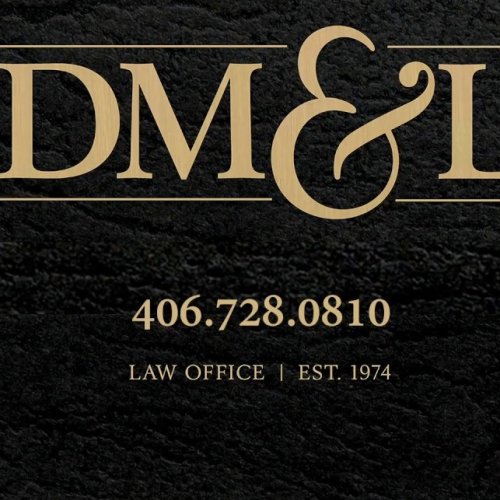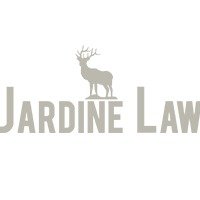Best General Litigation Lawyers in Montana
Share your needs with us, get contacted by law firms.
Free. Takes 2 min.
Or refine your search by selecting a city:
List of the best lawyers in Montana, United States
About General Litigation Law in Montana, United States
General litigation refers to the process of resolving civil disputes in court. In Montana, this area of law covers a wide range of legal issues involving individuals, businesses, and government entities. General litigation can include disputes over contracts, property, personal injury, employment matters, landlord and tenant conflicts, and more. The goal of general litigation is to resolve disagreements using Montana's legal system, which often involves negotiation, discovery, trial, and sometimes appeals.
Why You May Need a Lawyer
There are many situations where Montanans may require help from a general litigation attorney. Common scenarios include:
- Breaches of contract or business disputes with clients, partners, or vendors
- Personal injury claims resulting from car accidents, slip and fall incidents, or workplace injuries
- Property and boundary disputes between neighbors or with governmental agencies
- Disagreements between landlords and tenants involving leases, evictions, or property conditions
- Allegations of fraud, misrepresentation, or unfair business practices
- Defamation, libel, or slander claims
- Consumer rights and collection disputes
A lawyer can offer critical guidance, help protect your rights, and navigate Montana’s legal system to seek the best possible outcome.
Local Laws Overview
Montana’s general litigation practice is governed by a combination of state statutes, the Montana Rules of Civil Procedure, and relevant federal laws. Some key local features include:
- District Courts - Most civil cases are heard in Montana District Courts, which have broad jurisdiction over general litigation matters
- Statute of Limitations - Montana sets time limits for filing civil lawsuits, which vary by case type (for example, three years for personal injury claims and eight years for breach of written contract cases)
- Discovery Rules - Parties must exchange relevant information before trial, governed by the Montana Rules of Civil Procedure
- Mediation Requirements - Some courts may require mediation or settlement conferences before a case is set for trial
- Small Claims Process - For certain lower-dollar disputes, Montana offers a simplified small claims procedure, but legal representation may be limited
- Appeals - Parties unhappy with the outcome may appeal decisions to the Montana Supreme Court or higher courts, depending on the case
Frequently Asked Questions
What is general litigation?
General litigation is the legal process of resolving non-criminal disputes between two or more parties in court. This can include cases involving contracts, property, injuries, and more.
Do I need a lawyer for a civil dispute in Montana?
While it is not required to have a lawyer, having one can greatly improve your chances of success, especially in complex cases or when significant money or rights are involved.
How long do I have to file a lawsuit in Montana?
The time limit to file a lawsuit, known as the statute of limitations, depends on the type of case. For example, personal injury claims must generally be filed within three years, while written contracts have an eight-year limit.
How does the litigation process work in Montana?
Litigation typically starts with filing a complaint, serving the defendant, engaging in discovery (information exchange), possible settlement discussions or mediation, and, if needed, proceeding to trial.
What is discovery?
Discovery is the legal process where each party can request information, documents, and testimony from the opposing side to help prepare for trial.
Can my case be settled before it goes to trial?
Yes, many general litigation cases settle before reaching trial through negotiation, mediation, or court-ordered settlement conferences.
What happens if I lose my case in Montana?
If you lose, you may be ordered to pay damages or comply with other court orders. You may have the option to appeal the decision to a higher court.
Are there alternatives to litigation?
Yes, alternative dispute resolution methods like mediation and arbitration are available and may be required in some Montana courts before trial.
How much does it cost to hire a litigation attorney?
Costs vary widely depending on the complexity of the case and the attorney's experience. Some attorneys charge hourly, while others may offer contingency or flat-fee arrangements for certain cases.
Where can I find help if I can't afford a lawyer?
If you cannot afford legal representation, Montana has legal aid organizations and resources that may assist with civil litigation matters for qualifying individuals.
Additional Resources
Several Montana organizations and government agencies provide assistance and information related to general litigation, including:
- Montana Judicial Branch - Offers information on court procedures, forms, and court locations
- Montana Legal Services Association - Provides legal help to low-income Montanans
- State Bar of Montana - Can refer you to qualified attorneys in your area
- Montana Law Library - Maintains resources and guides on Montana law and litigation procedures
- Montana Department of Justice - Offers consumer protection services and information
Next Steps
If you are facing a legal dispute or believe you need assistance with a general litigation matter in Montana, consider these next steps:
- Gather all relevant documents, contracts, and evidence related to your issue
- Consider reaching out to a Montana attorney who specializes in general litigation for an initial consultation
- Contact a local legal aid organization if you have financial concerns
- Review court websites and official resources to familiarize yourself with the process and deadlines
- Prepare a list of questions and key facts to discuss with your attorney or legal advisor
Taking proactive steps can help you better understand your rights and increase your chances of a favorable resolution to your legal matter.
Lawzana helps you find the best lawyers and law firms in Montana through a curated and pre-screened list of qualified legal professionals. Our platform offers rankings and detailed profiles of attorneys and law firms, allowing you to compare based on practice areas, including General Litigation, experience, and client feedback.
Each profile includes a description of the firm's areas of practice, client reviews, team members and partners, year of establishment, spoken languages, office locations, contact information, social media presence, and any published articles or resources. Most firms on our platform speak English and are experienced in both local and international legal matters.
Get a quote from top-rated law firms in Montana, United States — quickly, securely, and without unnecessary hassle.
Disclaimer:
The information provided on this page is for general informational purposes only and does not constitute legal advice. While we strive to ensure the accuracy and relevance of the content, legal information may change over time, and interpretations of the law can vary. You should always consult with a qualified legal professional for advice specific to your situation.
We disclaim all liability for actions taken or not taken based on the content of this page. If you believe any information is incorrect or outdated, please contact us, and we will review and update it where appropriate.
Browse general litigation law firms by city in Montana
Refine your search by selecting a city.














